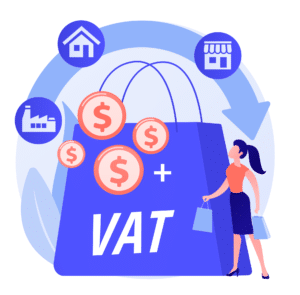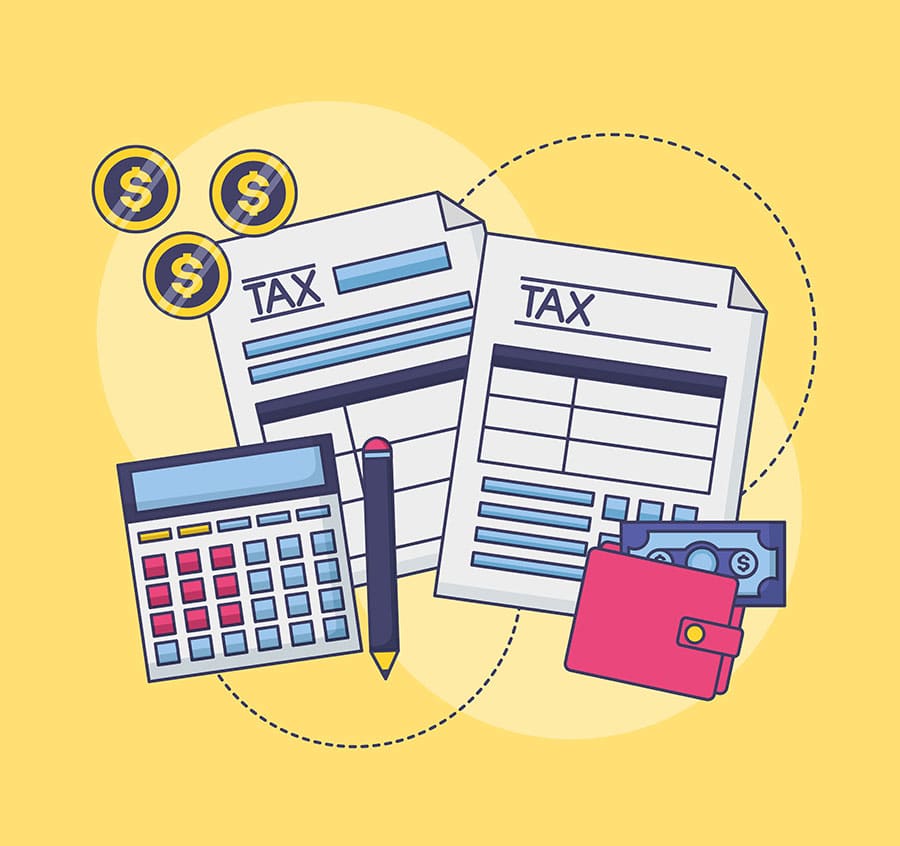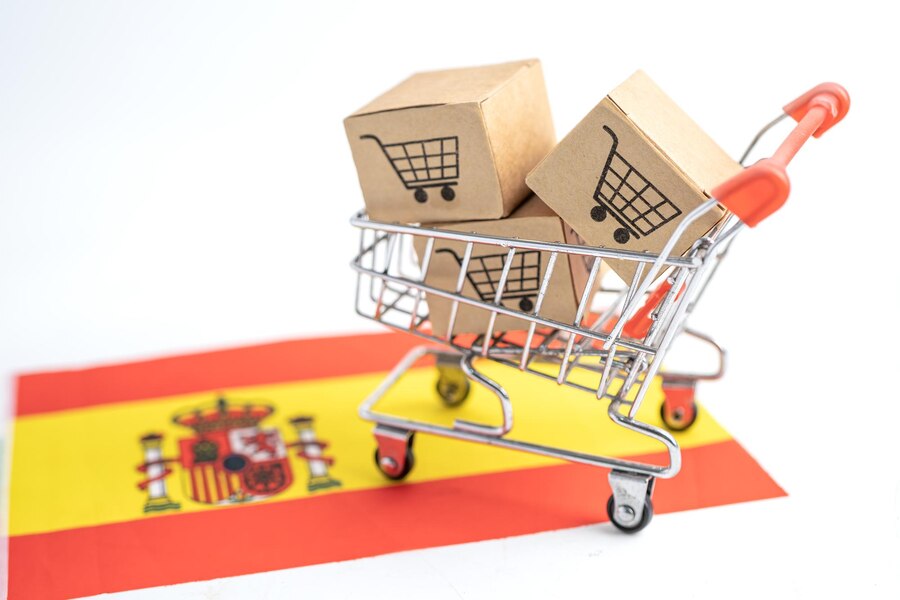Frantisek Imrecze is a corporate consultant who helps businesses reach their development goals. He has a wealth of experience in senior positions, such as executive secretary of the Intra-European Organisation of Tax Administrations (IOTA), president of the Slovak Financial Administration, and country manager of the Slovak subsidiary of SAP AG.
In your experience, how can tax-free shopping (TFS) improve a country’s economy?
It’s important to make it clear that this topic surrounds VAT so it’s a standard for all countries in which VAT is used as an indirect tax on sales of goods and services. Therefore, it is not exactly tax-free shopping (TFS) that helps per se, but the way VAT refunds are executed that helps a country – the simpler, fairer, and easier to use, the better for the economy.
The reason for this is the fact that a simple, fair, and easy-to-use system is more likely to reach more retailers than a complicated system, which typically only reaches big players in big cities.
Fairness is an important element here. Some VAT-refund facilitating companies take half or almost the half of the refundable value as commission, so the tourist only gets a minimal amount, meaning they are less motivated to claim for what is rightfully theirs.

About Frantisek Imrecze
The Author
Frantisek Imrecze is currently acting as an individual business consultant helping companies to expand to new territories and reach their business and development goals.
Read More
How does that work in relation to EU-member states?
There’s an advantage that VAT is the only harmonised tax throughout the EU so the principle and the system of how it is executed is the same throughout – even though the rates of VAT may differ from country to country.
If the centralised EU wanted to get involved trying to harmonise the process and make it simple, fairer, and easier-to-use for tourists from outside Europe, it would be a great advantage for all EU-member states. The system would attract more tourists to all countries – but especially for countries like France, Spain, Italy, and Greece where they have a significant number of tourists each year, according to recent statistics.
Can you elaborate on what you mean when you say, ‘making it fair’?
When we talk about consumer rights, we are referring to the right of any tourist coming from outside of the EU, who purchases goods and takes them out of the EU for personal use. They have the right to get the VAT-refund, as long as the goods are consumed outside the country. We may simplify here and say that the average main VAT rate in Europe is around 20%, yet with large commissions charged – potentially as much as 50%-60% – the amount you finally receive in your hand can be as little as 10% of your purchase.
This leaves the consumer wondering: is the state I visited trying to keep the money or is it the retailers trying to take a proportion of the money I am effectively owed?
I believe that every single person acknowledges the need for businesses to earn money to survive, so taking commission is fundamental – that’s not the problem. But the value of the commission – the money that is taken from them – is the issue.
So, the lower the commission, the fairer the system, and the more likely that tourists will be attracted to the idea of visiting the country and spending their money. In turn this can only have a significant, positive impact on economic growth.
Do you think it’s a well-known fact that consumers can take advantage of tax-free shopping?
I don’t believe so. I think some governments are working with VAT-refund systems in an insufficient way in terms of PR and information sharing. In my experience, governments are not doing enough to make tourists aware, because if they knew about it, I think people would be more inclined to visit the countries with an easier system where they can get more value for money.
For example, if “Country A” had a better system than “Country B”, I have no doubt that “Country A” would attract more tourism to their shores. There’s definitely a potentially competitive element to this, and governments should think of it as such – a competitive advantage for bringing more visitors. Harmonising it across the European Union would of course be the ultimate goal.
Could an easy-to-use and fairer VAT-refund system make a difference to provincial regions?
Well, big cities always attract more visitors of course, but there are different places which you can make more attractive through PR. Of course, tourists are attracted to the beauty of a lot of these lesser-developed areas but could also be tempted to visit them if smaller purchases from smaller retailers were eligible for VAT refunds on shopping.
You can therefore make certain regions more attractive with a system which is spread further around the country. We know that in recent years there has been a trend in retail for more specialised, artisanal products – products which are often found in more provincial or rural areas. I think it is a healthy trend which governments should be supporting.
So, if you want to get people to these towns and villages, then a fairer VAT-refund facilitator is an important factor to take into account, though it may not be the primary element.
Governments need to work alongside these systems to support prolonged economic growth for the regions and the state as a whole. After all, it is easier to attract tourism as a means of gaining revenue than to attract major investors – and of course one doesn’t exclude the other.
Could you elaborate on how you think the systems could be made easier? What problems could arise and how can they be solved?
In every country the system is different, and each is trying to make it simpler, but there are three main issues.
A tourist comes to a store and the store either has a contract with a facilitator for VAT refunds, or not – in which case you simply don’t get one. All stores should be included to make it properly efficient.
Problem number two is the process. Many countries have a paper-based system where forms need to be filled out by the customer, which makes it inefficient.
Finally, when you are leaving and crossing the border out of the EU, you see a long queue, which of course is not particularly attractive and discourages claims.
Some countries are making changes to improve the processes. In some places you can scan a QR code, barcode or receipt and it helps, but tourists are still forced to wait in a queue. A huge inconvenience to their transit which requires arriving at the airport an hour or more to wait in line – this has the potential to ruin the end of you holiday.
The system needs to be simplified and the only way to do that is through full digitalisation. Some governments and private companies do this inefficiently. They digitalise a process simply by putting the exact same paper-based process online. If you do that it doesn’t help you much. To execute it properly you need to change the process as a whole and then digitalise.
To leave out the middlemen – the retailers – from the equation is a great simplification because they don’t really need to be involved. The role of the retailer is to sell, the role of the consumer is to buy, and it is the role of the government to find a provider to facilitate the refund for the customer. Leaving out the retailer is a great simplification. And for this it should be fully digitalised. Then, of course, it’s just about checks and controls in the system.
What’s the importance of checks and controls?
It is necessary to apply analytics and controlling mechanics to stop any kind of fraud.
Now, the majority of tourists just want their refund of course. It is a very small percentage who wish the defraud the country they are visiting. Nevertheless, you don’t want to jeopardise the system, so you need these mechanisms to add control – but it’s not a terribly difficult thing to employ.
 It is unlikely that a tourist will attempt to commit fraud on lower priced items, it’s more likely to be on higher ticket items like high-end fashion, jewellery, top-of-the-range electronics etc. With these product categories, you can keep a closer eye on customers and apply these mechanisms using data which can be easily gathered. Did they really leave the country? Are they visiting once a week? If so, then they probably aren’t really a tourist. There are many KPIs that can be applied to ensure efficient monitoring.
It is unlikely that a tourist will attempt to commit fraud on lower priced items, it’s more likely to be on higher ticket items like high-end fashion, jewellery, top-of-the-range electronics etc. With these product categories, you can keep a closer eye on customers and apply these mechanisms using data which can be easily gathered. Did they really leave the country? Are they visiting once a week? If so, then they probably aren’t really a tourist. There are many KPIs that can be applied to ensure efficient monitoring.
So, can digitalised systems help controls and check through big data and GPS?
Absolutely, the same rules are valid for any kind of auditing. You shouldn’t bother everybody, only high-risk individuals and companies. You should have data to apply your risk analysis within the system.
Only a digitalised system can provide you with reliable data in an easy and manageable way. To get the data from paper is inefficient and costly, and there is of course the need to factor in human error. Time is also a critical element with this – you need to audit a potential fraudster while it’s happening, where possible in real time when the fraudster is crossing the border.
A digitalised system helps to catch the fraudster while acting in a friendly way to the majority of innocent tourists who are just enjoying their break.
What are the implications when we consider Europe’s Schengen agreement with open borders?
Of course, this also helps with Europe and the Schengen agreement. When there are no closed borders and tourists do not go through official checkpoints – as many visitors to Europe may not – you buy goods from several countries. You are of course only eligible for the VAT refund when you’re leaving Europe.
This means that harmonisation and integration across Europe is actually critical because tourists should get a refund when they leave via any airport for any goods they bought in any country. I’m a big fan of the notion of a digitalised system as a harmonised method of providing the service across the EU.
Of course, this isn’t an easy thing to get passed at a European governmental level, but I believe that the more that countries would use this kind of system, the better.
Do you think that governments are dubious to make this easy for fear of losing money from VAT?
Certainly, and it is a false economy to feel like that. They need to understand the competitive advantage to attract more tourists which can negate any loss in VAT revenue by encouraging more spending. It’s also about supporting SMEs and supporting consumer rights – tourists have a right to the refund, so it’s not a case of governments giving anything extra. This is how it should work.
What obstacles do you think there are to achieving a harmonised solution?
When considering a country-by-country solution, according to my experience leading the Slovak Financial Administration, there are a couple of elements.
Governments are typically bound to a status quo on legislation. For many countries, the retailers are part of the system, and it needs an overhaul of legislation, which is never simple.
The other issue is that there are still various thresholds in various countries with regards to when tourists can apply for a VAT refund – some are over 100 euros, and some are zero. Higher thresholds are in place to recoup cost from paper-based solutions which are costly – a higher threshold to make it worthwhile. A digitalised solution negates this.
What are the cost implications of employing a digitalised system?
A digitalised system is hosted by a private company. Governments have no need to invest in implementing the digital solution themselves. They just need an interface for analytics, audits, and identification for high-risk individuals. Governments need to allow for that within legislation and then support and promote it. The cost of the implementation of this system itself is basically zero.
Compared to digitalising other processes, when governments must invest in buying systems, training, infrastructure etc., a digital VAT-refund system is hugely cost effective – you just need to allow for the system to be utilised. So, costs remain minimal.
Is there anything else you think is important to mention regarding tax-free shopping and VAT-refunds?
I think I would simply echo my previous words. Especially after the past few years and the struggles many countries have faced through the pandemic, attracting tourism remains the most efficient means of increasing revenue and creating economic growth. Although VAT-refund facilitation may not be on the top of every government’s priority list, it should be seen as a vital element in attracting visitors and regaining momentum in tourism. And the only way to capitalise on this mechanism for economic growth is through digitalisation, making it simple, fair, and easy-to-use.






